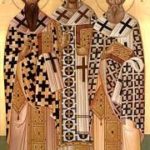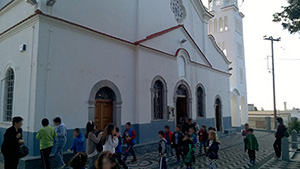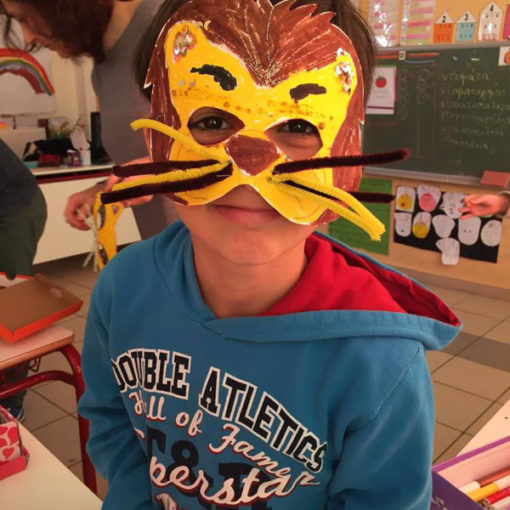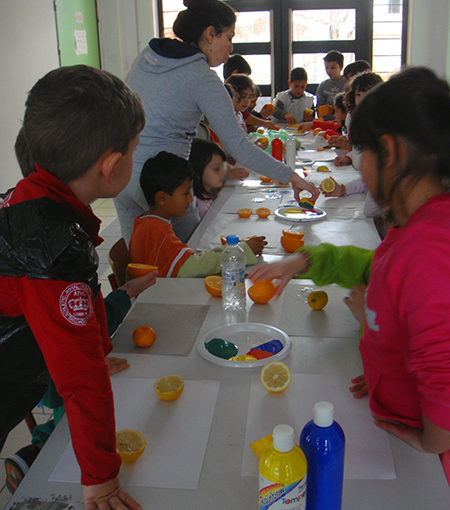On the 30th of January we joined the 2nd Primary School of Vrontados and went together with all pupils and teachers to the church of Agios Markos. There, we listened to the traditional orthodox worship that is celebrated every year at this winter day in honor to the three Saints: St. Bassilis, St. Gregorious and St. Jiannis.
St. Gregorious – also called Gregory the Theologian – was a Philosopher and an Archbishop in Canstinople in the 4th century. Being in an influential position, he established Hellenism and Trinitarian theology into the church.
St. Bassilis, well-known as St. Basil the Great, was a Greek Bishop of Caesarea Mazaca in Capadocia. Some of his biggest impacts are the definition of guidelines for the community life in monasteries and his support of poor and less privileged human beings. Therefore, he is said to be the Saint of traditions.
St. Jiannis carries the epithet Chrysostom. This old Greek term means “golden-mouthed” and refers to his outstanding talent of holding speeches and preaching about the connection between the bible and the everyday-life. Furthermore, he spent some time of his life in asceticism, barely eating, speaking and sitting. His thoughts were only dedicated to the bible at this time.
The holy trinity has always been very important in the faith story, but in the 11th century, people in Constantinople split up into three religious orthodox groups: the Basilians, the Gregorians and the Johnites – each convinced that their hierarch is the greatest.
In 1084, the three holy Saints appeared to the Bishop of Euchaita, also known as Bishop John (in Greek: Jiannis). They insisted on their equality before God and asked him to remove all disagreements and disputes among the three faith groups.
For that reason, the bishop chose the 30th of January for a common festiveness. This feast ensured a peaceful coexistence and the tribute and recognition of the equate importance of St. Bassilis, St. Jiannis and St. Gregorious.
The week before the 30th of January, this religious background story was told to the students in the lessons which helped them to understand the meaning of that special event. Also for us it was an interesting experience to listen to the explanations and to get some detailed information about this happening.
On that celebration day that has been coming down to the present days, a bread-loaf gets blessed by the local priest and is shared out to the orthodox community. This tradition is a symbol of luck.
After the worship, often orthodox communities sit together, drink and eat while listening to speeches containing religious and moral ideas. Therefore, also we got the chance to participate in such a meeting of the Primary School – organized by some parents – and to experience the social cohesion and welcoming atmosphere.
This event gave us a deeper insight in the Hellenistic culture.
To see all pictures go into our gallery!





